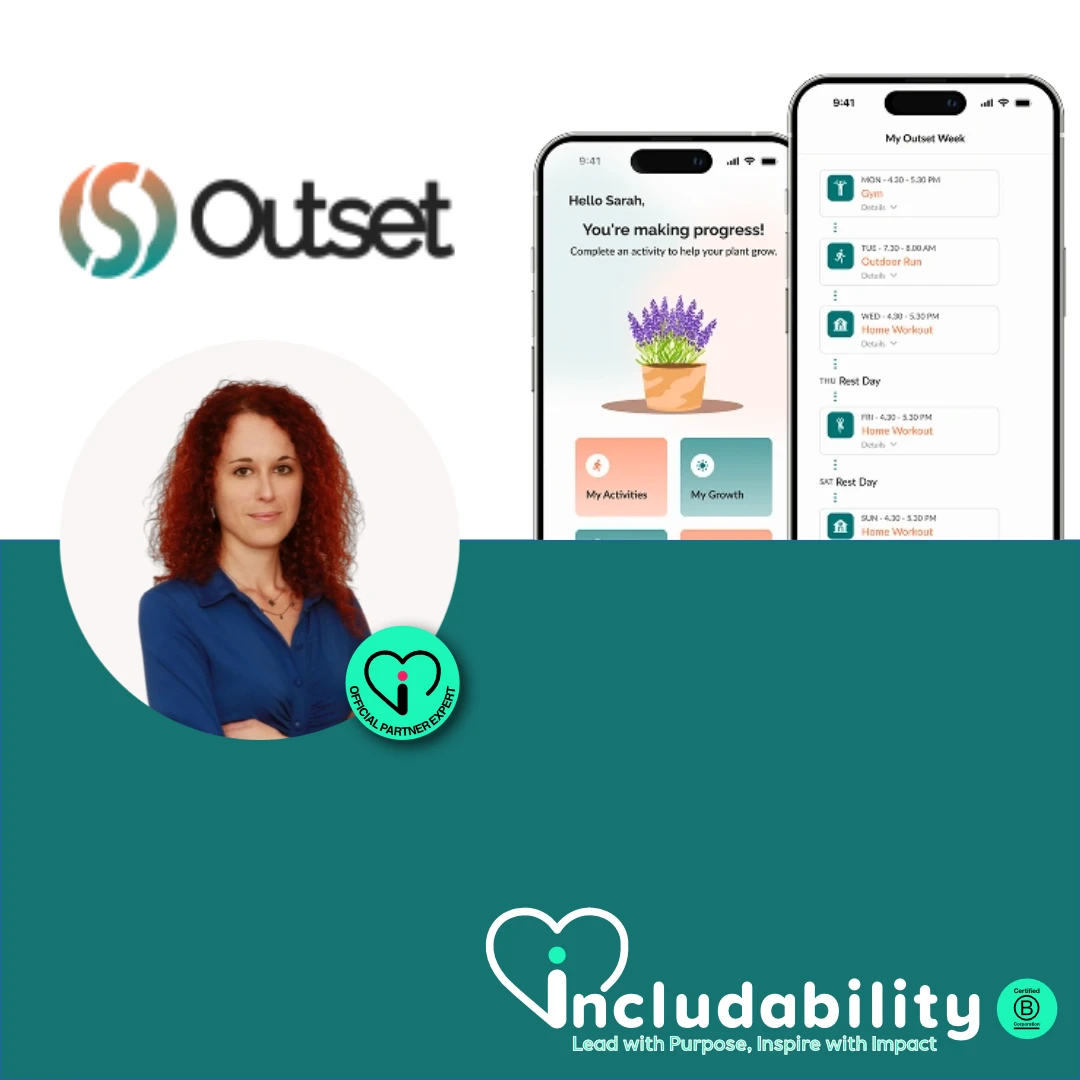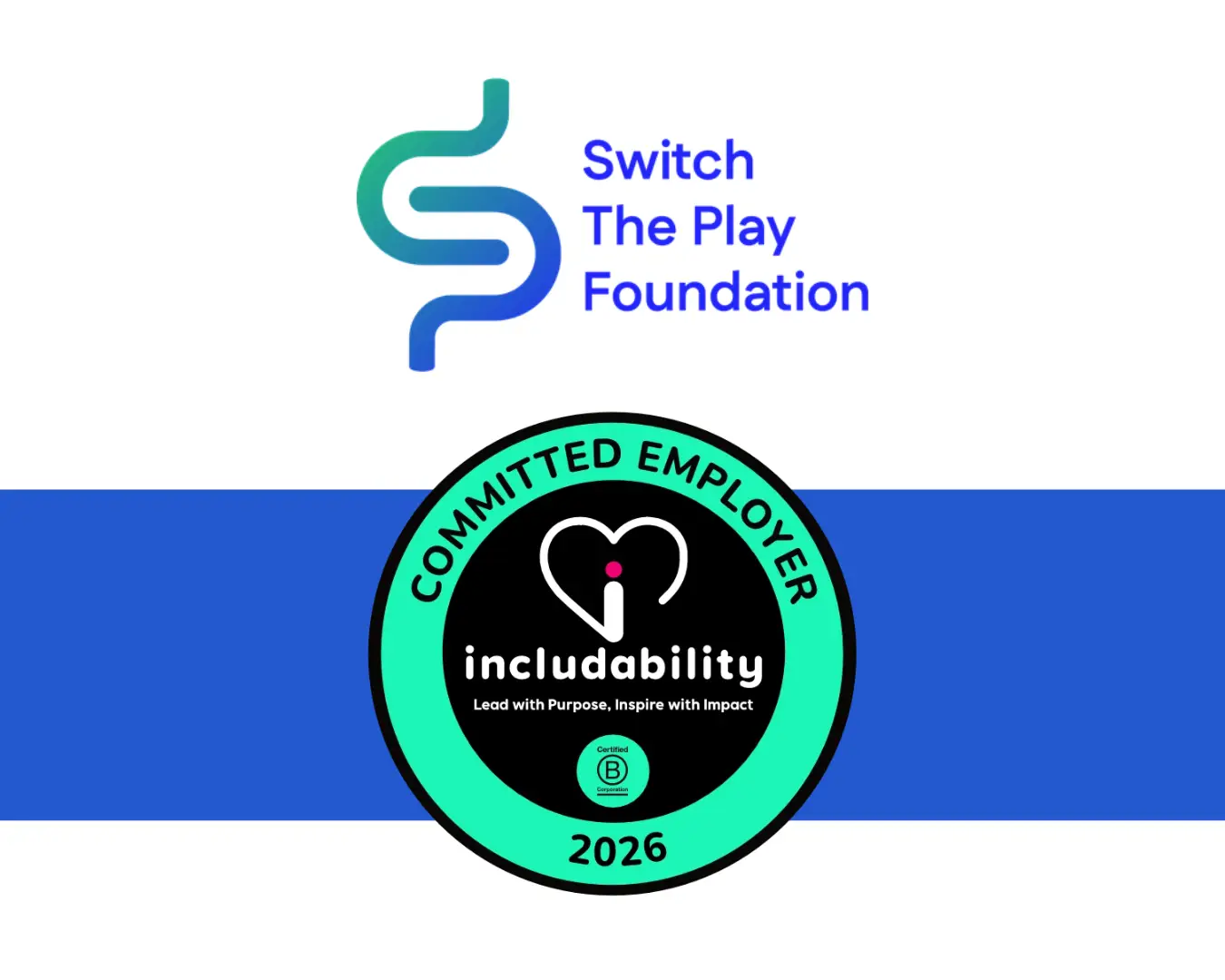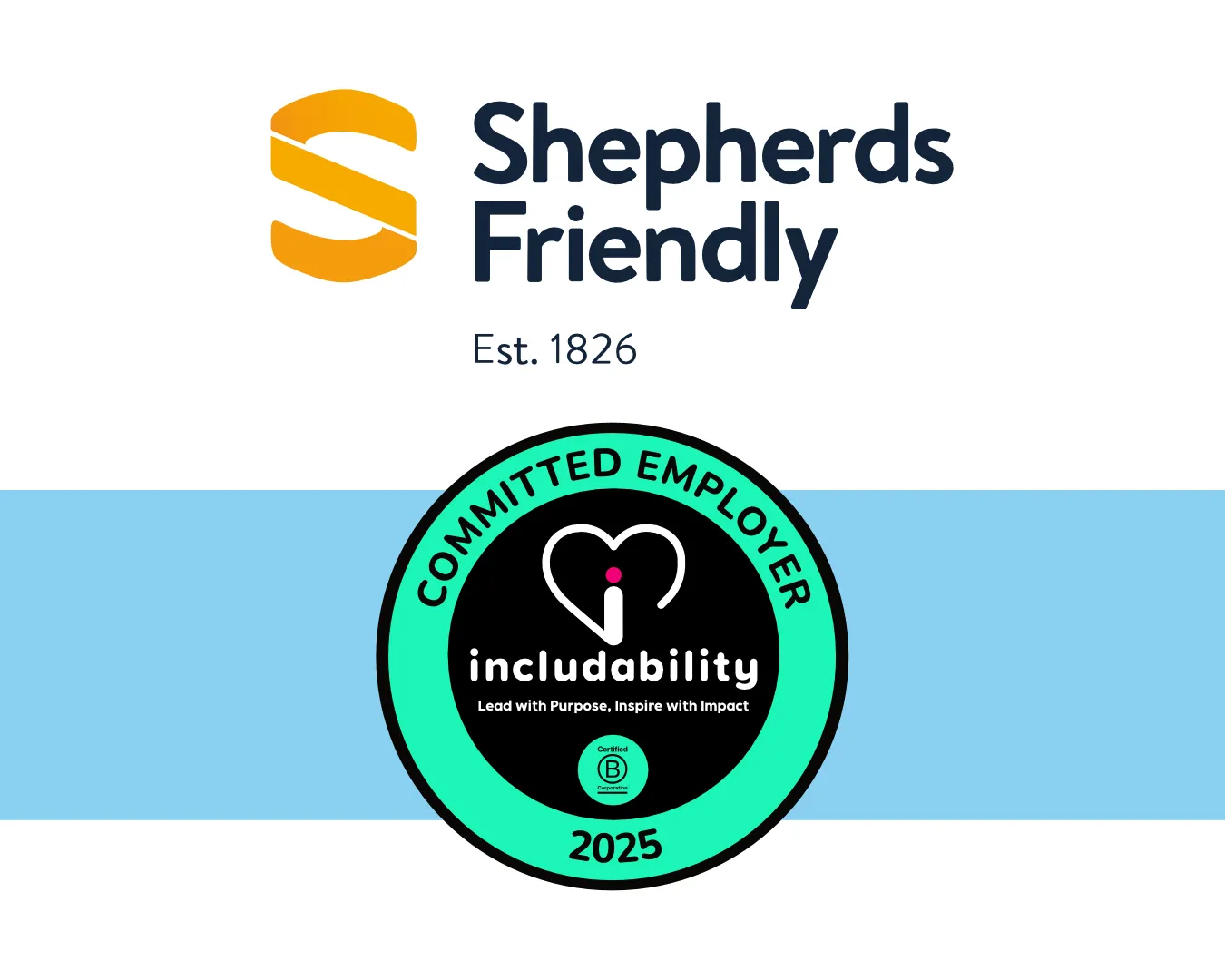How Can Women Develop Healthier Working Routines Around Their Cycle?
Q&A with Dr Emma Ross Co-Founder at The Well HQ about Can Women Develop Healthier Working Routines Around Their Cycle?

Q&A with Dr Emma Ross Co-Founder at The Well HQ

The Well was launched in January 2021 and became an Includability partner in April.
Emma has spent the first ten years of her career working in academia. She obtained her PhD at Brunel University, London, then became a researcher and lecturer in sport and exercise science at Brunel before moving to the University of Brighton.
Soon after, she transitioned her career to elite sports and was head of physiology at English Institute of Sport – the science and medicine arm of the UK High Performance System. She was responsible for sports scientists who were working with the Olympic and Paralympic athletes where she stayed until 2020. She stepped out of elite sport to co-found her own business, The Well, with Baz Moffat & Bella Smith.
The motivation for Emma’s research came after the Rio Olympic games when there was a process of examining data and using it to inform Team GB’s next steps. One fact that caught her attention was GB female athletes were not winning as many medals than other female athletes were winning for other nations. She was asked to explain why that was the case. It was a huge question, and the reason why GB had less successful female athletes compared with the US, Canada or New Zealand started with why girls are dropping out of sport at twice the rate of boys through to whether female health was really understood by the team when athletes get to the top level and at each stage in between.
The question allowed Emma to explore women in sport and, five years ago, she started diving deeply using her background of physiology and knowledge of sport science and the sporting system. She looked at the questions, are we looking at female athletes as females as well as athletes? Are we considering all things that makes them female and a successful performer
The answer, no.
Topics like the menstrual cycle, breast health and getting the right sports bra were being discussed, but she says pelvic health or how emotions manifest in women and how to use them in sport were not talking about and that gap needed filling and Emma seeks to fill in some of that missing information.
Can women develop better working routines around their menstrual cycle?
The tricky thing is that every woman’s experience would be different to the next. We know predictably what the hormones are doing across an average of 28-day cycle but how a woman actually feels because of those peaks and troughs of hormone fluctuations can be very different.
There are 150 symptoms reported in the premenstrual phase and those range from someone who feels very energetic and confident through to someone who feels lethargic and depressed, and these are women at the same point in their cycle and experiencing it in a very different way.
That can be down to our genetics, they determine how sensitive we are to hormones. Factors like our lifestyle, diet, the amount of exercise and how we manage stress can also affect how the hormones affect us.
The best thing to do would be to tune into your own cycle understand your experience of it. There will be times you will feel great and times symptoms crop up and it is a matter of recording the symptoms and how they affect your work.
When you start to understand your cycle, you can start to anticipate it and what it is going to bring you each month. Then you can start to adapt how you go about things to ensure you are getting the best out of yourself every day.
There could be a week where you feel energised and amazing, and you may want to set your alarm earlier and you may want to fit in a workout or a brisk walk. Maybe its is a time to dedicate a few days to a project which requires energy and to be highly engaged.
There may also be times where you experience symptoms like pain, fatigue, or anxiety and understanding what helps and what triggers those allows you to start to overcome them. If a few days before your period starts you feel a little overwhelmed or anxious, those might be the days you’ll want to use a mindfulness app or a sleep app. There may be times you have food cravings and want to reach for high-sugar things that make you have sugar crashes and high energy or low energy fluctuations. On those days, you are maybe planning your meals a bit more diligently and cooking meals in advance to stay on top of your nutrition.
For every woman, that plan will look slightly different. It is about developing ‘body literacy’ – understanding your body and knowing what your cycle feels like physically and emotionally then working with it intuitively so you are not at the mercy of it and can start to be in the driving seat of it. Then you can adjust things, so you are working with your body rather than against it.
Can a woman’s monthly hormone cycle affect training and performance in elite sport?
It was a question I used to ask Olympic athletes, would you choose for your final not fall on your period if you are impacted so much? And often the answer was yes.
That became a mission for me because I didn’t want any athletes to be unlucky because their big event fell on when they were having symptoms. The first thing was to work with them to make sure we were doing enough to manage the symptoms. Unless there was an underlying clinical reason, like endometriosis or polycystic ovarian syndrome, the symptoms of your cycle should be manageable, and your cycle and periods should be fairly regular. If they are not, there should be something we can do improve that situation.
As women, we are not well enough educated on what those things are, and as a society we are not very good at helping women explore who they are because it is seen as a bit of a weakness. It is no different to an injury like a frozen shoulder or a sprained ankle. Making adjustments like taking the lift or having a different chair and desk setup because my shoulder hurts is no different. We are less inclined to try solutions for things that happen to us every month because of our cycle because there is a bit of judgment and I would really like to change the perception of that.
With athletes, we would work with them to ensure, any given day of their cycle, they can be their best. What was fascinating about the physiology of the cycle for athletes at any level, the first half of the cycle is more anabolic – where our muscles grow and repair better – and we know we recover better from exercise in that half of the cycle. You can utilise that as an athlete or just active as there are certain times of the cycle where your body more likely to be adapting to different types of exercise and other times where the physiology might be better for longer endurance efforts and other times where it might be able to do high-intensity efforts. You can work with the physiology of your cycle to get the best out of your training.
The research shows that performance, perse, is not affected by the cycle. Measuring by a strength test or aerobic fitness test, you should be able to give the same performance on any given day. The caveat to that is the symptoms you get may mean you do not feel like doing it. Adapting to exercise or how your body fuels exercise is different, however, and we know exercise can feel better or easier when your body is set up in that way.
The first half of a cycle gives better results for higher intensity training, you can recover quicker, you can put in strength work and can adapt slightly better. In comparison with the second half if the cycle where you would want to longer and lower intensity efforts, more endurance types like 5K or 10K runs or longer cycles or swims. We know in the pre-menstrual phase yoga can be effective in alleviating symptoms and maybe you would start to include some of those restorative movement patterns as you get closer to your period.
We do know that moving in general is good for relieving cycle symptoms. Even if you don’t feel like exercising, we know it can be effective. Motivating yourself to get up and do something, it can even be walking around, is definitely better for your body and more likely to have a positive effect on your symptoms than if you stayed curled up in a ball.
Can any similar effects be translated to other jobs where being active is required?
How we might get the best out of the cycle if you have a job where you’re active and you need to be active every single day, the cycle is going to happen regardless and you have to make the most of your brain and your physicality on any given day and that’s where you would need to tune into your cycle and know what it is going to throw at you and you have some of the solutions to:
- Capitalise when it’s on your side.
- Have some strategies for relieving symptoms when it’s not so if being active is part of your job, your cycle doesn’t get in your way.
Does a job role requiring longer periods of inactivity affect cycles differently to active roles?
If our cycle is going to feel as good as it can do, that is underpinned by us making the hormones the way we are meant to then getting rid of them when we use them.
We know hormone health depends on four important things.
- Having a balanced diet, good gut health is important.
- Moving and exercise is great for overall health but particularly good for hormone health.
- Sleep
- Stress management
If you get all of those, your experience of your cycle will be improved. If you don’t get them all, it can affect your cycle and exacerbate your symptoms and cause heavier periods, greater pain and greater emotional fragility, and jobs with inactivity is going to contribute to that. Rushing from Zoom call to Zoom call can be stressful and we know that can affect hormone health. We might find it harder to switch off and recover if we’ve been sat in front of a screen all day and we know sleep can really impact our cycle. It does make a real difference being inactive, stressed and being anxious can have an impact on your cycle health and how your experience of your cycle goes.
What routines do recommend for women who are working in active and non-active roles?
If you are an active woman and want to stay active for health and fitness, or for competition and sport, there are some important things that we need to incorporate. There is doing the fitness you love whether that is swimming, cycling or running, but incorporating resistance training because we know we have to look after our muscle and bone health more as women as we age.
As women, we are more likely to have joint injuries than men and are around 4.5x more likely to have a knee injury and twice as likely to have an injury of the ankle or shoulder if we are doing activity. Doing resistance training is one way we can make our bodies more resilient and robust to injury.
Girls and women have less movement mastery and have less basic movement skills than boys and men. The research routes it back to our development as kids and how we play. Girls are more engaged in verbal and creative activities in their free time. Boys: Jumpers for goalposts, running around playing active games.
It means over time girls become, as adults, less good at moving and that can have a knock-on effect to injury risk but also our general engagement with sport. If you are active, it is important to watch out for good technique.
As parents, we should be encouraging our girls and boys to move in loads of different ways when they are young, so they know how to move.
Even if you like to be active, but you are stuck at a desk for hours in a day, research shows even marathon runners, if they are sat for 8 hours and do their training in the evening, they are much less healthy than someone who has been moving around but not necessarily training for a marathon.
Sitting has been described as the new smoking in terms of impacting our health. We do need to build into our working routines ways to move even if we have inactive jobs and are sitting for longer periods of time at desks, or at our home working environment.
Some routines may be to have more standing meetings and use boxes to raise your device to eye level so you can stand. As you are standing you can be moving or fidgeting. That can be very good and breaks up your sitting.
By working from home we have cut out the natural movement that comes from being in an office or in work: We are not moving from the train to the office. We are not popping out to the water cooler or to go and get lunch from somewhere down the road. We are not moving around departments for meetings. We are just sitting in the same place. Building movement time into your day is important.
Having a commute buffer at the end of the day, even if you are not commuting anywhere, can be beneficial because that is a time where, mentally, we are decoupling from work and transitioning into home or into family time. If we don’t have that, we mentally struggle to switch off from work and into something else and that means work starts to seep into everything else.
Movement can play a big part of that because when you finish work, you can have a walk around the block and that is the “commute” and when you come back, you are now not at work.
Men can experience hormone fluctuation cycles as well. Do they have any similar experiences in physical or mental wellbeing that can be attributed to this cycle?
The sex hormones that make us different, women have oestrogen and progesterone which fluctuates across a monthly cycle. Men have testosterone which fluctuates across a 24-hour cycle in a similar way as cortisol and it tends to peak in the morning and slowly fade over the day, then start again. That might mean you are more productive in the morning and studies have shown in the three hours after waking, you are the most productive. Don’t fill that time trawling through your emails, save that time for some of the more important items and save your emails and the drudgery for later in the day when all of the hormones that help us feel alert and awake have started to decline. Scheduling your day according to that is much more productive than always easing into your day because that is not what your body is doing.
You can override that natural rhythm if you have lots of coffee in the morning for example. Working with your body’s natural cycle, whether that is the daily cycle or the monthly cycle, whether you are a man or a woman, is really useful.
As we come out of lockdown and establish a new normal in some of our working routines, do you have any recommendations for employers that will benefit the wellbeing of their employees?
If employees continue to work from home, that is one of the positive things that will come out this is the presenteeism that existed with lots of employers has been alleviated and people can get stuff done from home and they don’t have the stress and burden of traveling would be brilliant.
My challenge to employers is now, how are you going to be accountable to your employees?
How are you going to make sure they are not getting out of bed at 8am and by 8:30, they are on Zoom calls until 6pm then they still do some work in the evening because they haven’t been able to separate home and work, and they have sat all day.
There may be role modelling in your organisation about ensuring employees spending hours on Zoom calls can have standing or walking meetings. If you are inviting people to move as they work is brilliant. We have lots of walking meetings and they are super productive because your brain is working better if you are out and about.
The more hunched over you sit during the day, the more that affects our brain and our mental health. How employers can encourage moving from a distance is the challenge, but I think it should be on the agenda for everybody.
Find more information including webinars on women’s health at The Well HQ
Image Credit: Christian Banfield/Dimitri Ganin
Related resources & events
Sign up for our newsletters
We have an employer and Job seeker newsletter giving you all the latest information in one easy and digestible email. Sign up today for news and job advice straight to your inbox.









